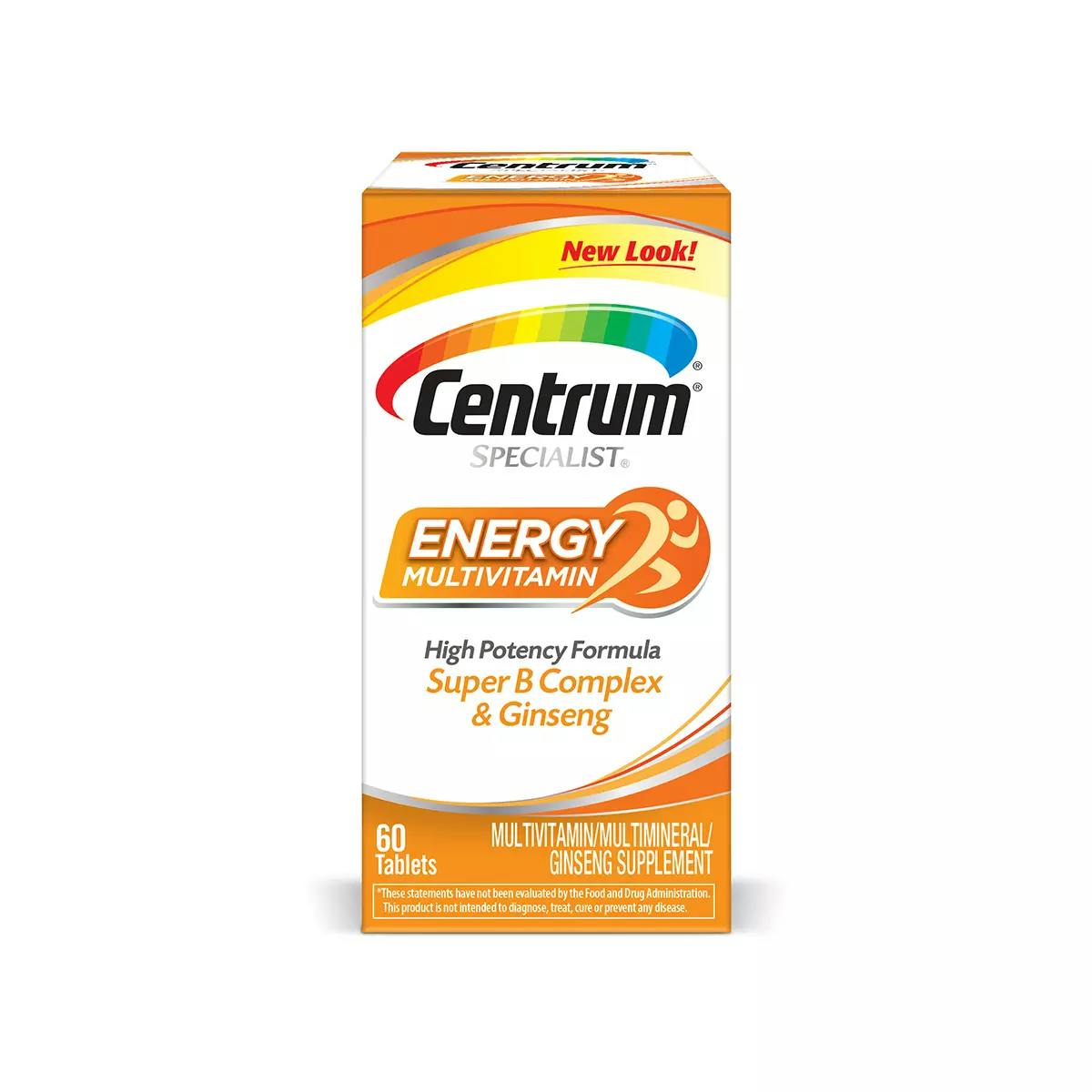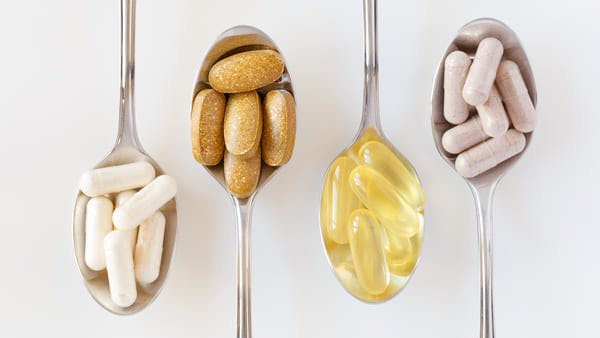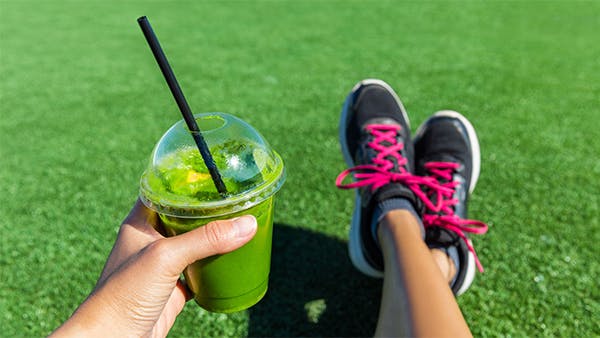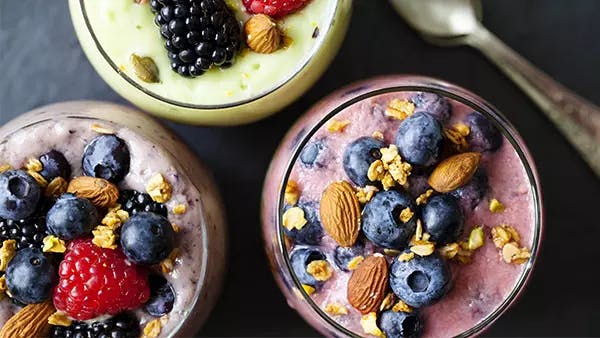Top 5 Nutrients for Men 50+
Contributed by: Elizabeth Ward, MS, RD
Turning 50 years old doesn’t mean you have to slow down, but now’s the time to maximize nutrition. Here are the top five nutrients for men over 50, and how to include them every day. Most men fall short in at least one of these, but a multivitamin can solve for some of these common nutritional discrepancies.

1. Vitamin B12 for Energy
Vitamin B12 helps you harness energy from the protein and fat in food, and to make red blood cells that carry oxygen to cells and working muscles. The suggested intake for vitamin B12 doesn’t change after age 50, but age alters the way your body processes it.
Naturally-occurring vitamin B12 uses stomach acid to facilitate absorption, but stomach acid production declines with age, putting many older adults at risk for vitamin B12 deficiency, which can lead to nerve damage that could slow you down.
After age 50, try getting most of your vitamin B12 from dietary supplements and fortified foods, which both use a synthetic form of the vitamin that doesn’t require stomach acid for absorption.
2. Calcium for Bone Strength
When you think of calcium, osteoporosis, a condition that makes bones more fracture-prone, may come to mind. And when you think of osteoporosis, you may think of it as a woman’s disease. That’s not entirely true. While women rapidly lose bone mass in their 50s, by 65 or 70, men and women are losing bone mass at the same rate, and the absorption of calcium, decreases in both sexes. To support bone health, take in the suggested 1,000 milligrams of calcium daily, about the amount found in three servings of dairy foods. If you don’t consume adequate amounts of calcium-rich foods, consider taking a supplement to meet the suggested daily intake.[1]
3. Vitamin D to Help Absorb Calcium
Vitamin D assists the body’s absorption of calcium and oversees calcium’s movement into, and out of your bones, and it’s similarly involved in skeletal muscle health. Additionally, vitamin D also supports brain health as cognitive function becomes a greater concern with age.[2]
The body can make vitamin D, when skin is exposed to strong summer sunlight. However, many people avoid the sun because of concerns about skin cancer and premature wrinkling of the skin. In addition, the older you get, the less efficient skin becomes in helping to produce vitamin D. You need 15 mcg of vitamin D daily, the equivalent of six, eight-ounce glasses of fortified milk. If you’re over the age of 70, your vitamin D needs increase.
Other foods with vitamin D include salmon, tuna, and fortified eggs. Many people don’t get enough vitamin D from food and rely on dietary supplements to make up for the remainder.
4. Vitamin B6 to Aid in the Metabolism of Fats, Carbohydrates, and Proteins
Vitamin B6 helps your body to keep going. It helps to keep your heart in working order, and it helps facilitate the release of glucose—fuel for your cells—from the liver and muscles, so that you can stay active. Vitamin B6 needs increase slightly after age 50 (from 1.3 mg to 1.7 mg).[3] Salmon is rich in vitamin B6, and other sources of vitamin B6 include fortified breakfast cereal, potatoes, bananas, and pork.
5. Fiber for Digestion
Fiber does more than keep your digestive system running smoothly. According to the U.S. Food and Drug Administration (FDA), dietary fiber falls under one of two categories: naturally occurring fibers that are “intrinsic and intact” in plants, and synthesized or isolated non-digestible soluble and insoluble carbohydrates.[4]
The fiber that occurs naturally in foods may help reduce the risk of cardiovascular disease and obesity. Fiber also provides feelings of fullness, which may help with weight control.
Men over 50 should aim for 28 grams of dietary fiber every day. To meet the suggested fiber intake, include at least five servings of fruits and vegetables and at least three servings of whole grains in your eating plan.
Foods that are naturally rich in fiber also supply many other nutrients, including carbohydrates for energy, vitamins, minerals, and phytonutrients, protective plant compounds.
Beyond Nutrients
While a well-balanced diet goes a long way in helping support longevity, healthy aging also involves sustaining an active lifestyle. Find and engage in activities you enjoy, like golf, swimming, tennis, or gym or home workouts.
Your physical health is a valuable factor for health outcomes, but your mental health should not take a backseat. Make an effort to be social, keep a positive attitude, and preserve your outlook. Instead of being scared of ageing, we should celebrate it, and if you approach it with a healthy mindset, you can improve your longevity and quality of life.
Elizabeth Ward, M.S., R.D., is a writer and a nutrition consultant who specializes in family nutrition, women's health, and weight control.











